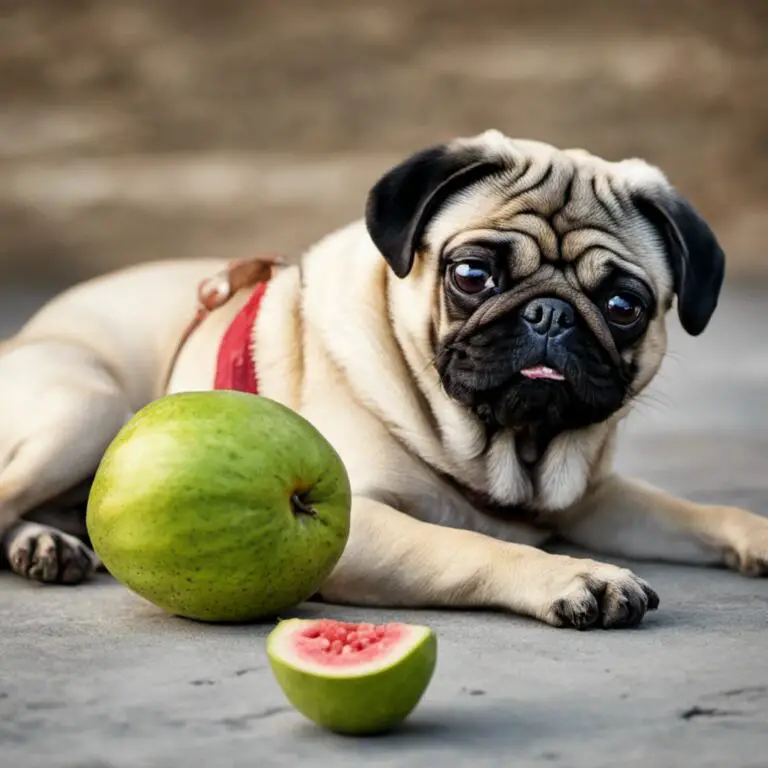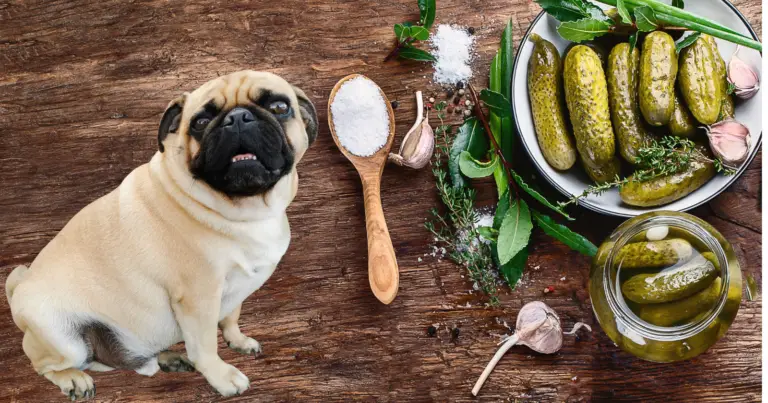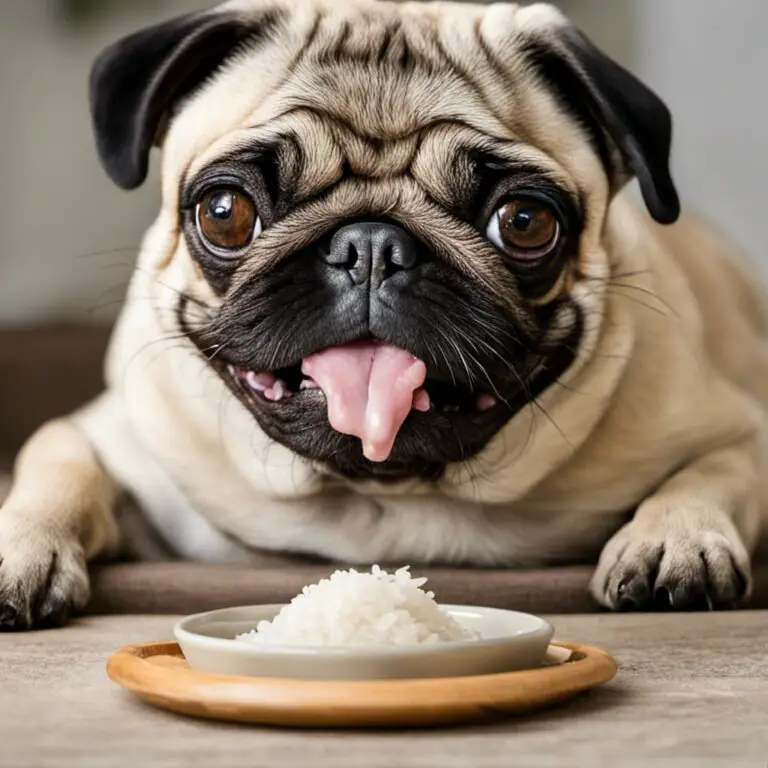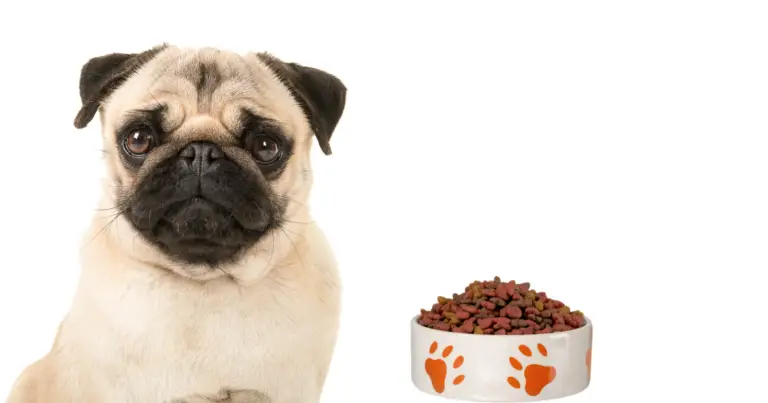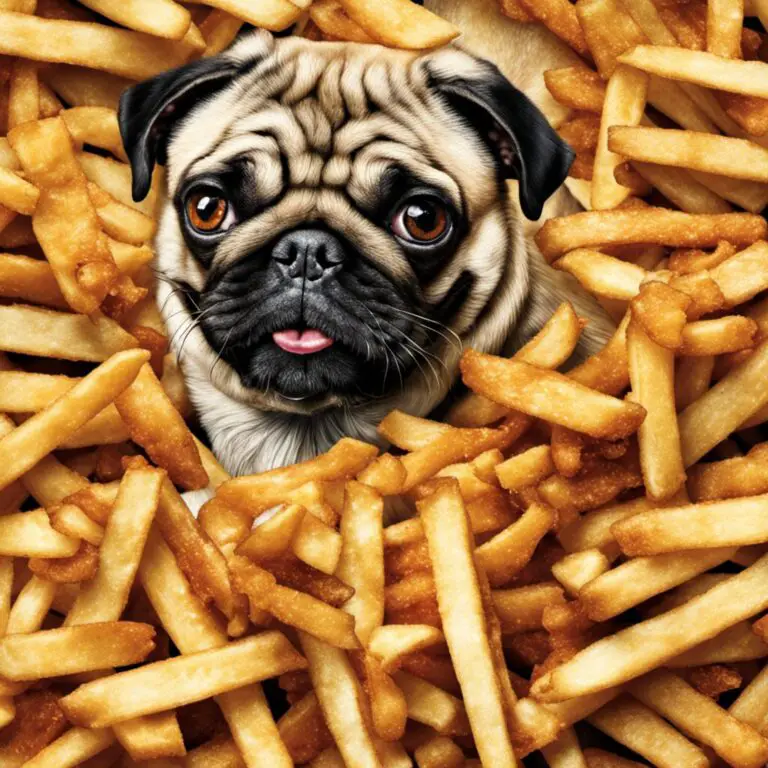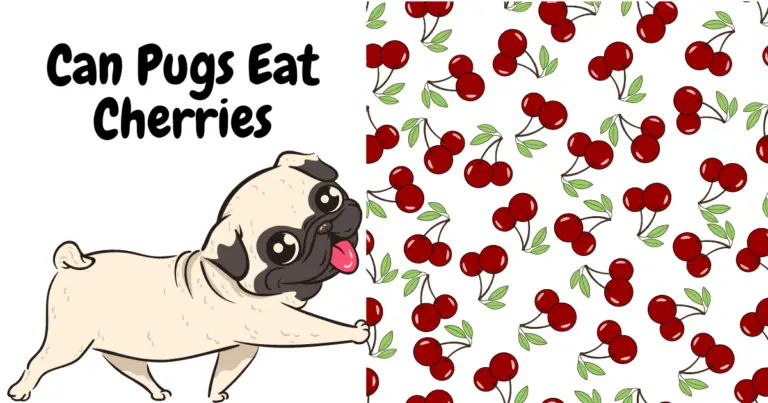Can Pugs Eat Honey? A Comprehensive Guide for Pet Owners
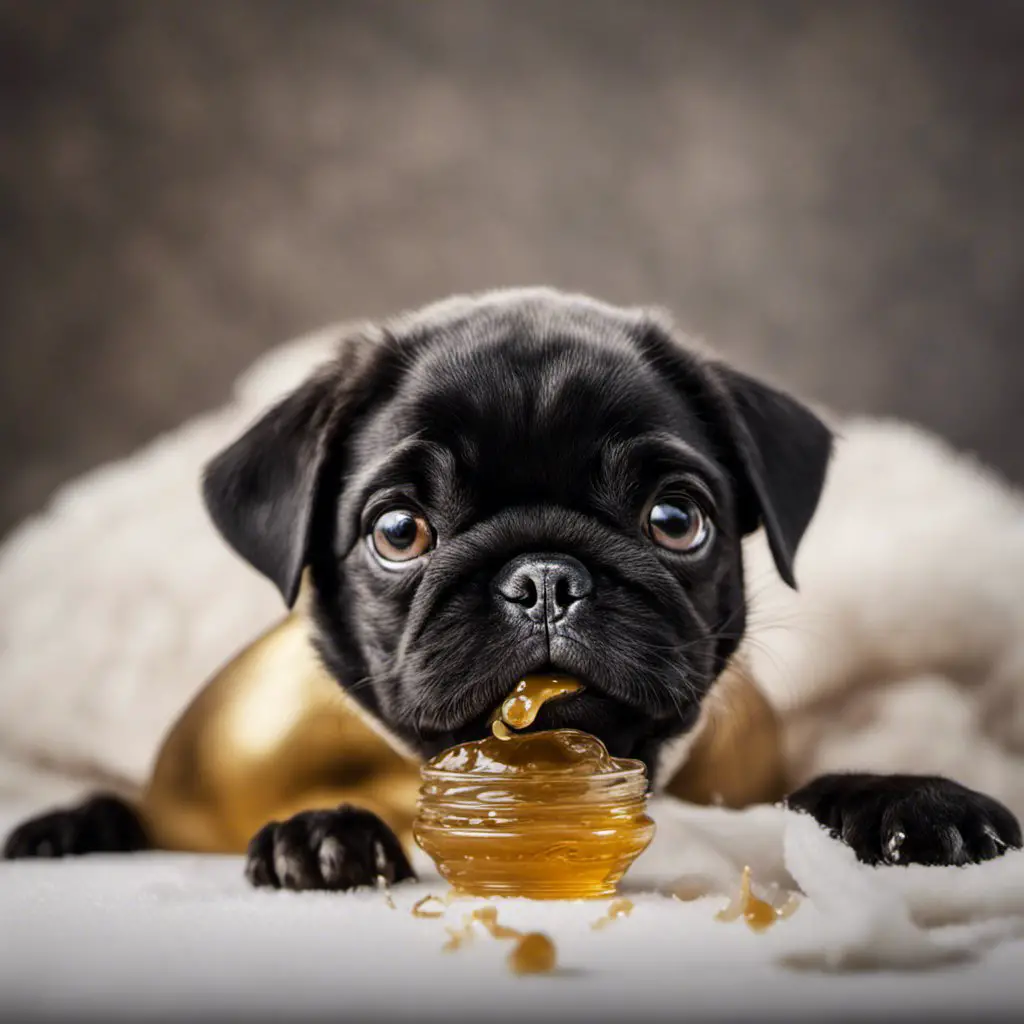
Pugs, like any other dog breed, have specific dietary needs and preferences. As a pug owner, you might wonder, “Can Pugs Eat Honey? “. Honey is a natural sweetener with numerous health benefits, but can it also benefit pugs?
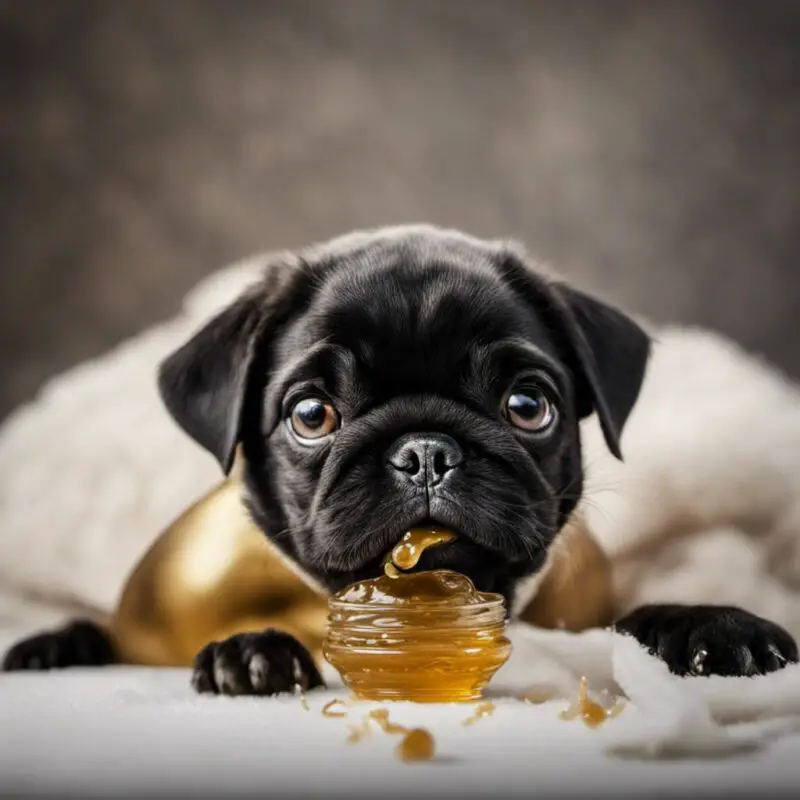
The good news is that pugs can indeed eat honey when fed in moderation. Honey is loaded with vitamins A, B complex, C, D, E, and K and essential minerals like calcium, manganese, iron, copper, and magnesium. These nutrients can provide a great health supplement for your pug as long as you’re mindful of the quantity you’re serving.
However, it’s crucial to consult with your veterinarian before introducing honey into your pug’s diet. Individual factors such as age, health history, and existing conditions can impact how your pug responds to honey. Remember, moderation is key, and ensuring your pug’s overall health should always be your top priority.
Contents
Table of Contents
Can Pugs Eat Honey
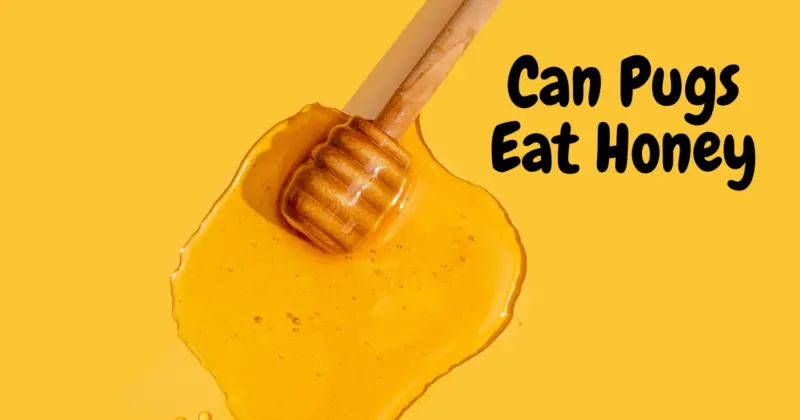
Yes, Pugs can eat honey when fed in moderation. Honey contains natural sugars and a wide variety of medicinal properties that can be beneficial to your Pug as a health supplement. This sweet treat is rich in vitamins A, B complex, C, D, E, and K and essential minerals like calcium, manganese, iron, copper, and magnesium.
Get The Free Food Eating Guide That Keeps My Pug Happy and Playful Even at 13 Years Old
100% Beginner Friendly & Lists Real Foods Your Pug Can Actually Eat!
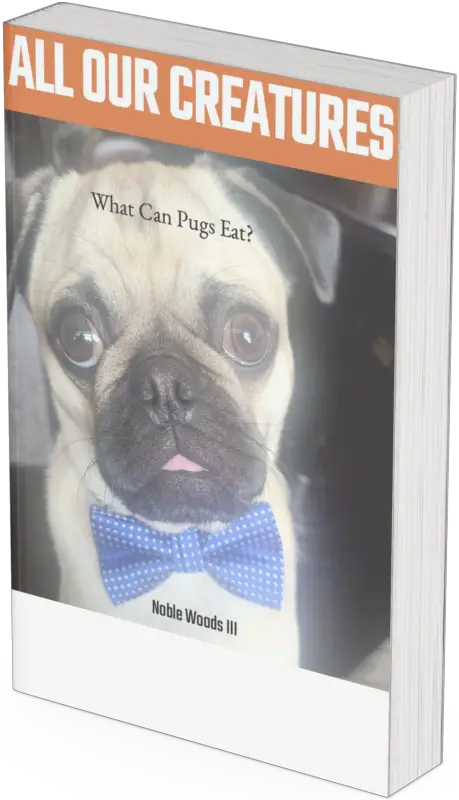
Honey has various potential health benefits for humans and dogs, including possibly helping reduce allergic reactions to flower pollen. While the scientific evidence behind this claim is lacking, there is some reason to believe that raw honey could help with allergies in dogs, assuming, of course, that your Pug is allergic to flower pollen.
In addition to its potential allergy-relief properties, honey is rich in antioxidants that help protect your dog’s body cells from damage. This makes honey a delicious treat and a potential health boost for your pug.
However, it is essential to note that honey should be fed with caution and in moderation to avoid overconsumption, as it is high in sugar. Overfeeding your Pug honey can lead to obesity, dental issues, and diabetes. To safely provide honey to your Pug, occasionally give them a small amount, such as a spoonful or two mixed with their regular food or given as a special treat.
It is also important to remember that Pugs, like other dog breeds, have specific dietary needs. While they can safely enjoy certain human foods like honey, adjusting their diet to suit their unique requirements is crucial. For example, Pugs can enjoy low-calorie treats like cantaloupe, which are beneficial for their health and hydration.
In conclusion, when fed in moderation, honey can be a tasty and beneficial treat for your Pug. Be sure to monitor their intake carefully and always consult your veterinarian if you have concerns about introducing new food items to your Pug’s diet.
Benefits of Honey for Pugs
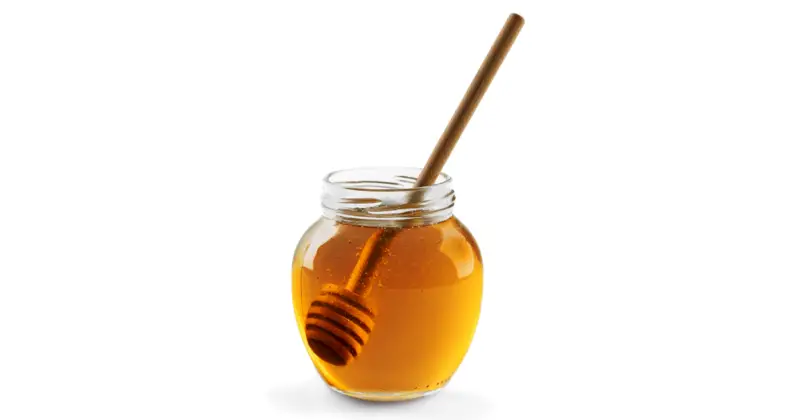
Honey can be beneficial to your Pug’s diet when fed in moderation. It contains natural sugars and various nutrients that can provide health benefits for Pugs.
Provides Essential Vitamins and Minerals
Honey is rich in essential vitamins and minerals that contribute to overall health in Pugs. Some of the vital nutrients found in honey are vitamins A, B complex, C, D, E, and K. Moreover, honey also contains minerals such as calcium, manganese, iron, copper, and magnesium 1.
These vitamins and minerals support various bodily functions in your Pug. For instance, vitamin A aids in maintaining healthy eyesight, while vitamins A and C contribute to a robust immune system. Furthermore, magnesium and potassium are essential in maintaining a healthy nervous system, while copper is crucial for supporting bone health.
In addition to vitamins and minerals, honey contains antioxidants that help protect your Pug’s body cells from damage. Antioxidants are essential for maintaining health and potentially lowering the risk of certain diseases.
It is essential to remember that honey should be fed in moderation, as excessive consumption can lead to health problems such as diabetes. Make sure to consult with your veterinarian before introducing honey into your Pug’s diet to ensure their safety and well-being.
Possible Risks of Feeding Honey to Pugs
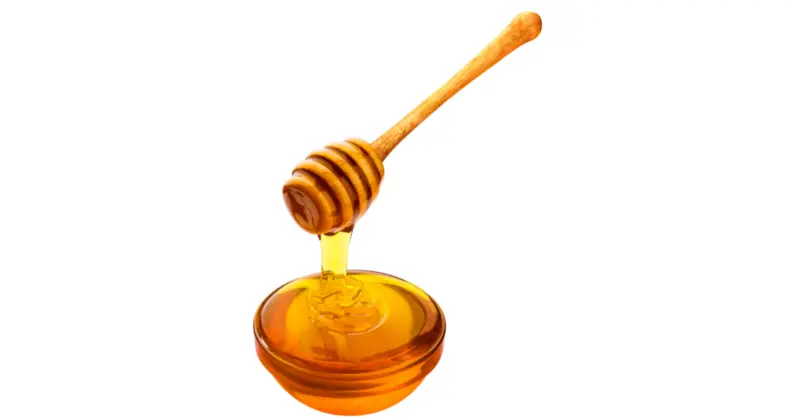
Risk of Obesity
Honey contains natural sugars and calories. When feeding honey to pugs as a treat or reward, it is important to be mindful of the quantity, as it can contribute to obesity. Pugs are prone to weight gain, and adding additional calories to their diet can exacerbate this issue. Maintaining a healthy weight is crucial for pugs to avoid putting extra strain on their joints and organs.
Danger of High Sugar Content
While honey has various health benefits, its high sugar content can also pose risks for pugs, especially those with diabetes. Feeding honey to a diabetic pug can lead to increased blood sugar levels, which may worsen their condition.
Even for pugs without diabetes, excessive sugar consumption can increase the likelihood of tooth decay, as the sugar interacts with bacteria in the mouth to produce acids that can damage teeth.
To minimize these risks, feeding honey to pugs in moderation and as an occasional treat only is advisable. Opt for low-calorie, low-sugar alternatives for regular rewarding and treat-giving. This will help ensure your pug maintains a healthy diet while enjoying the occasional sweet reward.
When and How Much Honey Can Pugs Eat
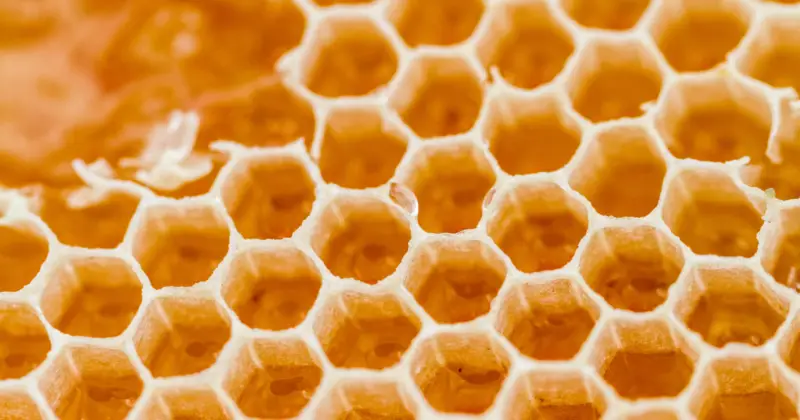
Honey is safe for pugs and contains natural sugars, vitamins, and minerals that can benefit their overall health. However, it’s essential to feed honey to your pug in moderation.
A small amount of honey, such as a quarter to half a teaspoon, can occasionally be added to a pug’s diet. Avoid serving honey daily, as it is high in sugar and can lead to excessive calorie intake and weight gain in pugs. To prevent any potential risks, it’s a good idea to follow the 10% rule, where treats, including honey, should not exceed 10% of a pug’s daily caloric intake source.
Honey can be used as a topping for their usual dog food or combined with other safe ingredients to create a tasty treat. For example, you can mix honey with a small amount of plain Greek yogurt or pure pumpkin puree. This will provide nutritional benefits and add some variety to their diet.
One crucial factor to consider is the quality of the honey. Opt for raw, organic honey since processed honey may contain added sugars or chemicals that could harm your pug. Raw honey retains its natural nutrients and has higher medicinal properties.
Remember to observe your pug for any potential allergic reactions or digestive issues after consuming honey. If you notice any adverse effects, it is best to consult your veterinarian for guidance. By following these recommendations, you can safely incorporate honey into your pug’s diet in small amounts, ensuring it’s a healthy and enjoyable addition.
Can Pugs Eat Honey? Watch this
Alternative Foods that Pugs Can Eat Safely
As a pug owner, you might wonder what other foods are safe for your furry friend. Let’s explore various options, including vegetables, fruits, and protein sources, that can provide your pug with a healthy and balanced diet.
Vegetables
Pugs can safely consume certain vegetables. These can provide essential nutrients, fiber, and low-fat content. A few popular choices include:
- Carrots: Pugs love the crunchy texture of carrots, making them a perfect low-calorie treat. Carrots are rich in vitamins and dietary fiber.
- Cucumbers: Known for their high water content, cucumbers can provide hydration and essential nutrients to your pug.
- Cucumber: This vegetable is low in fat, making it an ideal snack for pugs who need to manage their weight.
Not all vegetables are considered safe; avoid feeding your pug onions or persin-containing foods like avocado.
Fruits
Several fruits are both safe and beneficial for pugs:
- Apples: Loaded with vitamins and fiber, apples can be a tasty treat for your pug. Be sure to remove the seeds and the core.
- Bananas: Rich in potassium and vitamins, bananas provide essential nutrients. However, they are high in sugar, so moderation is key.
- Blueberries: A great source of antioxidants, blueberries offer various health benefits for your pug.
- Watermelon: Packed with water, nutrients, and vitamins, watermelon can keep your pug hydrated. Remove rinds and seeds before feeding.
- Mango: Pugs can enjoy mango in moderation, but make sure to remove the skin and pit.
- Pineapple: Offering essential nutrients, pineapple can be a safe fruit option for your pug, but avoid feeding them the tough outer skin.
Avoid feeding your pug grapes, cherries, peaches, and oranges, as they can be harmful to dogs.
Protein Sources
Protein is a crucial part of your pug’s diet. Here are some safe options:
- Salmon: Rich in healthy fatty acids and low in fat, salmon is an excellent protein source for pugs.
- Eggs: Pugs can enjoy cooked eggs as a source of protein and various nutrients. Serve them plain and avoid adding extra oils or seasoning.
As a pug owner, always remember moderation is key, and incorporating these safe alternative foods into your pug’s diet can contribute to their health and happiness.
Foods Pugs Cannot Eat
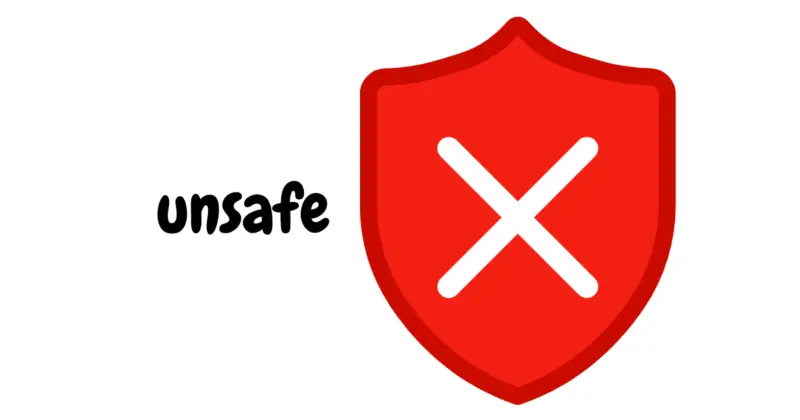
Toxic Fruits
Pugs must avoid certain toxic fruits to prevent digestive system issues, diarrhea, and vomiting. For example, avocado contains a toxin called persin that can be harmful to dogs, including pugs. Similarly, grapes and raisins should be off-limits as they can lead to kidney failure in dogs.
Cherries contain cyanide, which is poisonous for pugs. Although they would need to eat a large number of cherries to be at risk, it is best to avoid them entirely. Be cautious with peaches as well. While the flesh of the fruit is safe for pugs, the pit contains cyanide, making it toxic if ingested.
Dangerous Vegetables
Some vegetables can be harmful to pugs if consumed. Onions and garlic are particularly dangerous, as they contain compounds that can damage a pug’s red blood cells, leading to anemia[^3^].
Potatoes should be avoided in their raw form. Raw potatoes contain solanine, a toxin that can harm a pug’s digestive system, causing diarrhea and vomiting[^3^]. Similarly, other vegetables in the nightshade family, like tomatoes, can contain solanine when unripe, so they should also be fed with caution.
Cruciferous vegetables such as broccoli and cabbage are generally safe for pugs, but they contain isothiocyanates, which can cause digestive upset if consumed in large amounts[^3^]. It’s best to feed these vegetables in moderation.
Honey as a Natural Medicine for Pugs
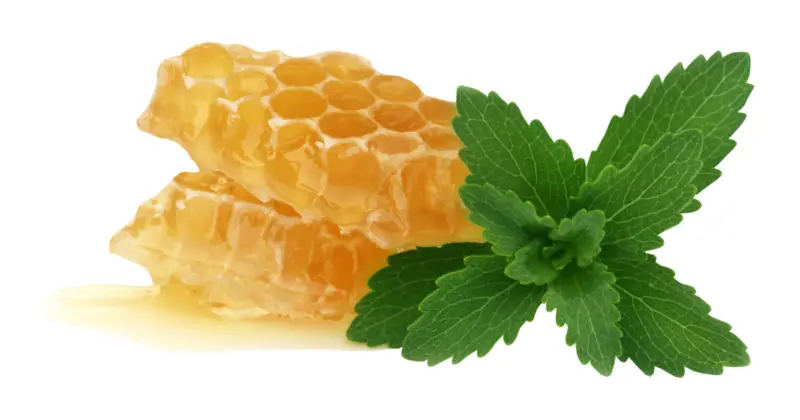
Immune-Boosting Properties
Honey is packed with vitamins, minerals, and natural sugars that have the potential to benefit your pug’s overall health. It contains vitamins A, B complex, C, D, E, and K and essential minerals such as calcium, manganese, iron, copper, and magnesium. These nutrients help to support a strong immune system, which in turn can help to protect your pug from a range of health issues.
In addition to its nutritional benefits, honey can also act as a natural remedy for seasonal allergies. The small amounts of pollen in raw honey may help minimize your pug’s sensitivity to pollen, reducing allergy symptoms. However, much of this evidence is anecdotal, and more research is needed to fully understand the extent of honey’s effectiveness in treating canine allergies.
Antibacterial Characteristics
Honey also offers anti-inflammatory, antibacterial, and antifungal properties, making it a versatile natural treatment option for various pet health concerns. Its antibacterial features are largely due to the enzymes it contains, which can help inhibit harmful bacteria’s growth.
This makes honey a potential option for treating minor cuts and infections. It’s important to always consult your veterinarian before using honey as a treatment for wounds or skin problems, as your pug may require a different course of treatment depending on the severity of the issue.
While honey might be a useful addition to your pug’s diet, remember that it should be given in moderation to avoid potential health risks, such as obesity. By sensibly incorporating honey into your pug’s diet, you can take advantage of its medicinal properties to promote their wellness and keep them in optimal health.
Consulting a Veterinarian
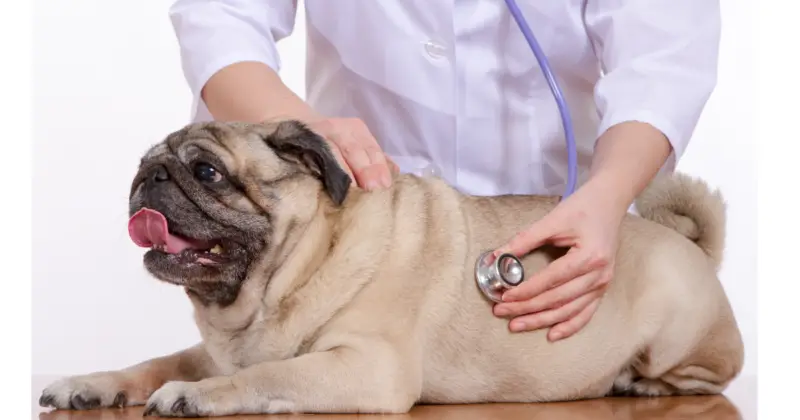
Before introducing honey into a pug’s diet, it is essential to consult with a veterinarian. They will provide guidance on the appropriate amount and frequency of honey consumption for a pug, considering its age, size, and overall health condition. It is crucial to discuss any existing health problems to ensure that honey will not exacerbate these issues or negatively impact the dog’s well-being.
A veterinarian will also help to identify the best type of honey for your pug. Some honey varieties may have additional health benefits due to their unique properties and composition. For instance, honey with a higher concentration of antioxidants or specific vitamins and minerals may benefit a pug’s health more.
Remember that while honey can have medicinal properties for your pug, it is not a substitute for professional veterinary care. If your pug is experiencing health problems or showing signs of illness, it is vital to consult with a veterinarian for a proper diagnosis and treatment plan. This will ensure your pug receives the appropriate care and support for any underlying health conditions.
In summary, when considering adding honey to a pug’s diet, seeking professional guidance from a veterinarian is essential. Their expert knowledge will help to determine the ideal way to incorporate honey into the dog’s nutritional regimen, considering its individual health needs and existing conditions.
Frequently Asked Questions: Can Pugs Eat Honey

Can honey help with a dog’s allergies?
Yes, honey can potentially help with a dog’s allergies, particularly when it comes to local raw honey. Local honey contains trace amounts of pollen from the surrounding environment, which may help desensitize a dog’s immune system when consumed in small amounts. However, it’s important to remember that the effectiveness of honey for allergies can vary depending on the dog and the severity of their allergies.
Is it safe to give dogs honey for vomiting?
Although honey is generally safe for dogs, it might not be the best remedy for dealing with vomiting. Instead, it’s recommended to consult your veterinarian if your pug is experiencing consistent vomiting, as it could be a sign of a more serious underlying health issue.
What kind of honey is suitable for dogs?
The best kind of honey for dogs is local, raw, and minimally processed honey. This type of honey is more likely to retain its health benefits and have a lower risk of being contaminated or adulterated. Avoid giving your dog honey that contains added sugar, artificial sweeteners, or other additives.
How much honey should be given to a dog for cough?
If you’re using honey to help alleviate a dog’s cough, it’s essential to give them the right amount. Generally, small dogs like pugs can be given half a teaspoon of honey up to three times daily. If your dog’s cough continues or worsens, it’s imperative to consult your veterinarian for further advice.
Are there any risks if a dog consumes honey?
While honey is generally safe for dogs, there are some potential risks to be aware of. Giving your dog too much honey can lead to cavities and tooth decay, obesity, and a potential spike in blood sugar levels. It’s also important to note that honey should not be given to puppies or dogs with compromised immune systems, as the risk of botulism from raw honey may be higher in these cases.
Can dogs consume honey-infused peanut butter?
Dogs can consume honey-infused peanut butter, as long as the peanut butter does not contain harmful additives like xylitol, which is toxic to dogs. However, it is crucial to give your dog small amounts of the peanut butter, considering the potential risks associated with excessive honey consumption and the high-fat content of peanut butter.

